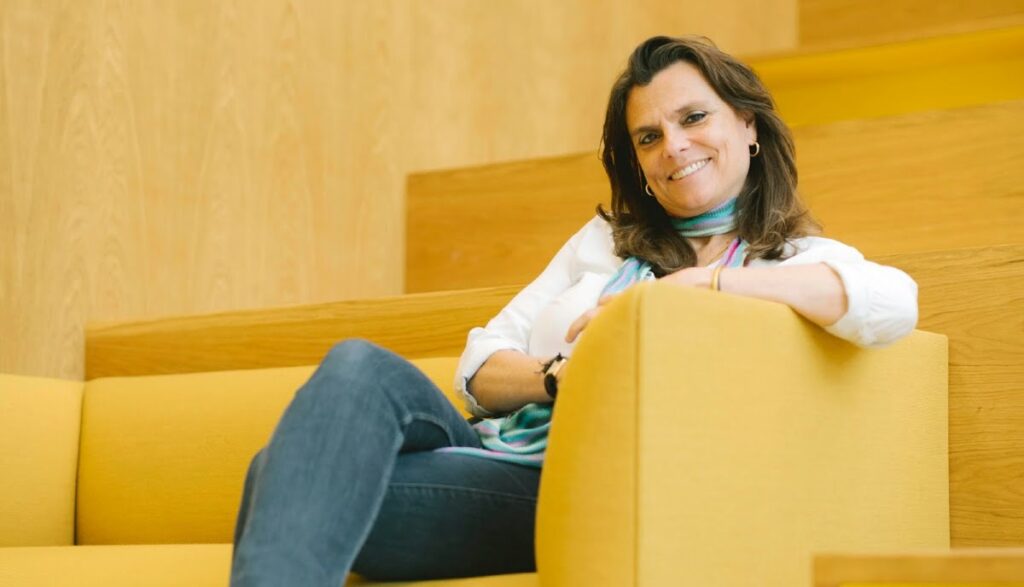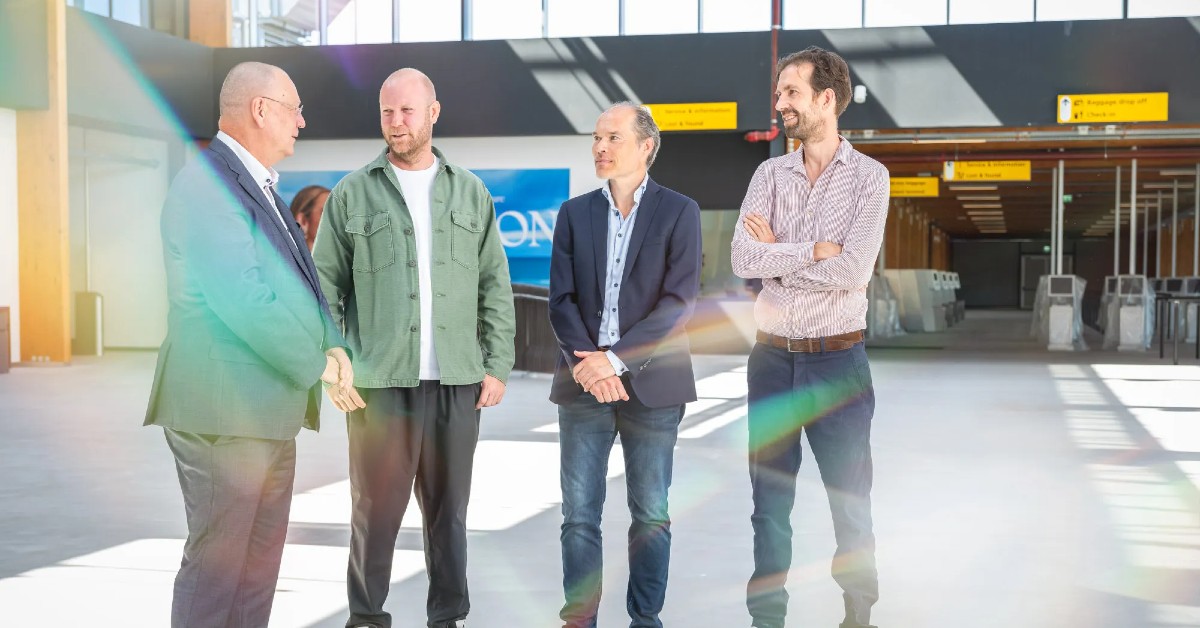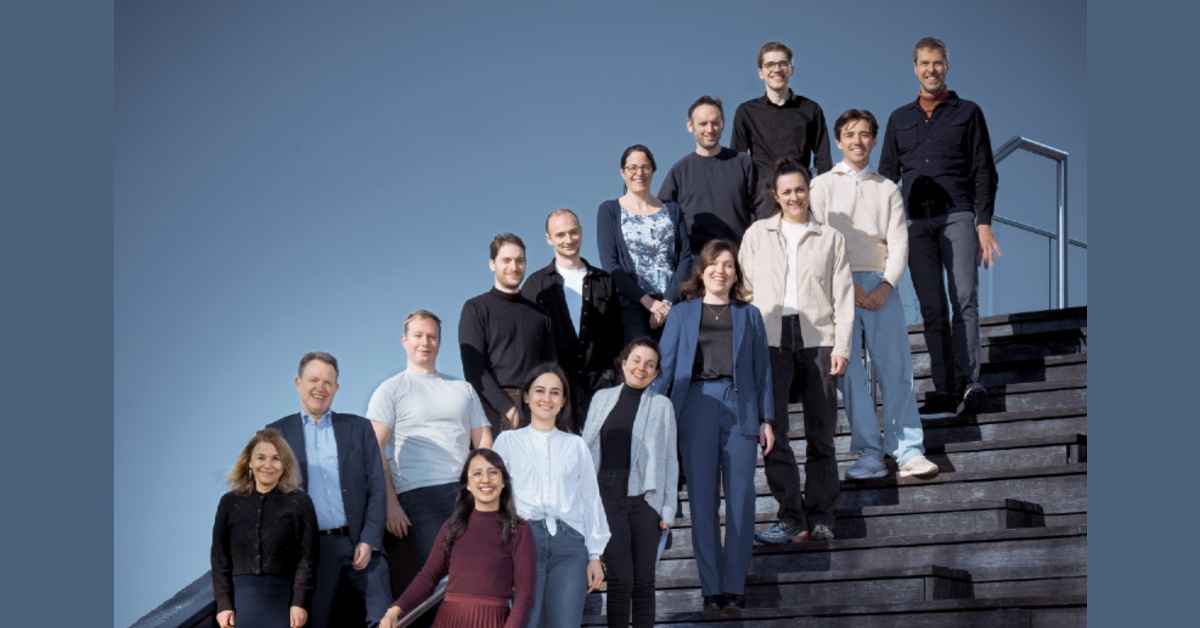After COVID-19 forced them to stay at home for months, students can finally go back to school, college or university. But during those months of studying from home, many students and professionals adopted different technology to keep on learning. To find out what changed in the world of education, we contacted three edtech startups from Amsterdam, StuDocu, Wizenoze and LoCoMoGo, to see how they view the world with schools back in session. Will innovations stick, or is everything going back to normal?
StuDocu: ‘The gap has been bridged a bit’
“I believe that this forced adoption of online education was painful but at the same time shows it has many benefits”, says Marnix Broer, CEO of StuDocu. The startup, in the Netherlands known as StudeerSnel, offers a platform where students can share their knowledge. Broer says it is too early to predict the long term effects of the lockdown on education, but he does see some changes. “Education was lagging behind significantly in the adoption of technology and due to COVID, this gap has been bridged a bit.”
StuDocu has seen a significant growth in usage in the past couple of months: “Our traffic doubled compared to the year before, regardless of COVID-19, but we’re on a very steep growth trajectory.” In the beginning of the lockdown, Broer describes a ‘scary time’ with a big drop in usage: “However, after a couple of weeks, when they announced online schooling, the usage increased dramatically. For example, in Italy, where we were growing around 80 percent year-on-year, our growth jumped to above 130 percent. Right now it’s ‘low season’ due to summer. New students in The Netherlands will start in September, the school year in other countries starts in October so those moments will drive a strong growth of users again.”
Significant growth in traffic
StuDocu is also tapping a new group of students. During the lockdown, they announced they will make their platform available for Dutch HAVO and VWO education, between elementary and college. Broer: “We saw that high school students are also more and more looking for sharing platforms like StuDocu. In the countries where we already launched the high school platform – like Spain – we saw immediate interest and a strong growth. Currently we are in the low season of usage because of summer holidays and therefore helping a few hundreds of Dutch high school students every month, but we anticipate the high school traffic to grow significantly during the course of September.”
Stay up-to-date: Read all our COVID-19 coverage here
Despite the rapid growth of his platform, Broer is not certain universities and schools have caught up on the benefits of online learning, he says: “I am still a bit afraid that with the lockdown ending, everything will go back to the ‘old-fashioned’ way of educating. But hopefully both educators and students see the great benefits of certain ‘modern’ ways of educating and studying, and therefore will adopt some of the newly explored ways of remote learning, creating the new status quo. Bookmarked in history as ‘education after the corona crisis’.”
Wizenoze: reshaping the industry of education
If you ask Diane Janknegt, she’ll tell you that this post-corona education might be closer than we think. Janknegt is co-founder of Amsterdam based edtech startup Wizenoze, which curates learning material to offer an ‘internet for education’. Earlier this month in an article on TNW, Janknegt identified several signals that she believed are currently reshaping the industry. Among them are more partnerships between public and private parties, an increased adoption of online learning, bespoke learning paths created by smart technology and classrooms operating in a hybrid fashion.

Wizenoze is poised to play a big role in this future and their future looks bright. While the world was on lockdown, the startup steamed ahead and closed a funding round of €4 million. For Janknegt, this opens up the possibility to expand globally: “Besides the Netherlands we now have a team in the UK, where our strategic headquarters is located. We already have clients in India and are busy adding new clients. We’re also working in three different countries in the Middle East.
Read also: Fundraising during pandemic? This is how these Amsterdam-based startups pulled it off
The growth and expansion all happened during the many different lockdowns in the world. But now that summer is over and kids go back to school, one might expect another surge in usage. But it is too early to tell, says Janknegt: “Last week was the first week of school for one third of schools in The Netherlands. It won’t be until September until we can say something about usage. But the signals are good.”
LoCoMoGo’s toy train teaches to code

Other good signals can be found at edtech startup LoCoMoGo from Amsterdam. They smashed their crowdfunding goals by raising €125,000. This was 12 times the required amount to get started. This allows the startup to start making their toy train a reality. LoCoMoGo Train is a non-robot toy to take kids from screen-less coding, all the way up to real-world coding when they are a little older. The train follows commands – i.e. make sounds, activate lights in different colors – that can be programmed by kids. For more advanced options, LoCoMoGo offers an app.
Learning to code is nice, but having fun is the number one priority, says founder Kibet Kipkemoi. “For similar initiatives, the kids usually have to start with coding, before they can actually play with the toy. Alternatively, they can immediately play with the thing, but then it lacks depth in teaching new skills.” Kipkemoi says his train offers fun straight out of the box. Different modules to add to the train offer a world of learning possibilities.
‘Unlocking potential’
“If we would’ve launched our product, this would’ve been a great time,” says Kipkemoi. “Many people are at home now, buying products to use there.” The word ‘would’ is key there, because LoCoMoGo suffered some setbacks from the coronavirus. Kipkemoi: “We were doing great on Kickstarter, but then the USA went into lockdown. Our leads went to zero and we had some cancellations. Some people lost their jobs and didn’t have the money for our train anymore.” On the production side, things slowed down as well. “We wanted to go to China, because production of electronics is just way faster there. But we couldn’t go. We work together with different countries, and that is certainly harder now.”
The plan is for LoCoMoGo to launch its code-teaching toy train to the first 600 customers in the first quarter of 2021. Kipkemoi also sees a lot of interest from primary schools. Next month the startup is testing its product on several schools in Amsterdam to see how kids react, play and learn with the train and its components. But Kipkemoi has no problem looking beyond that. Learning kids in Amsterdam the fundamentals of coding is only the beginning, if it is up to Kipkemoi: “I want my nephews in Kenya to have the same opportunities, so they can work at any company in the world and will be able to develop their own ideas. The ultimate goal is to unlock that potential in Africa.”
This article is produced in a collaboration with StartupAmsterdam. Read more about our partnering opportunities.
Featured image: Studocu










01
From telecom veteran to Dutch Startup Visa success: The Jignesh Dave story